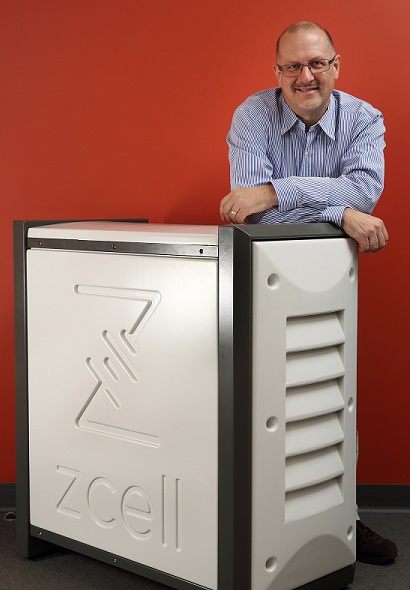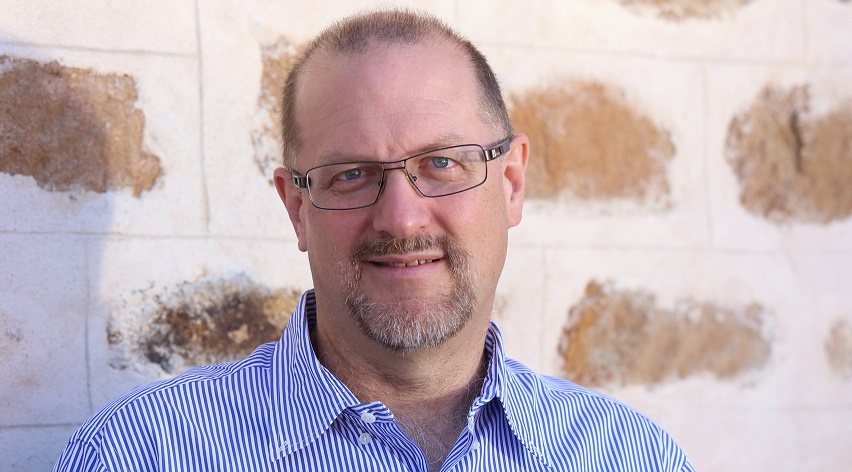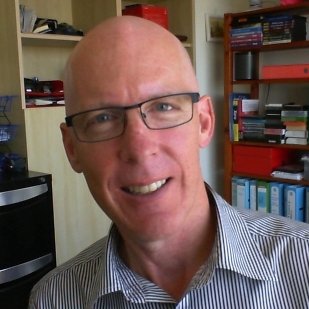Welcome to our Innovator Series that showcases some of Australia’s innovators, and movers and shakers, in and around ICT.
This week, Information Age speaks to Simon Hackett.
After 25 years focused on building high-speed data networks, Simon Hackett has shifted his attention to a more fundamental challenge: keeping the lights on.
The Adelaide-based entrepreneur is now Executive Chairman and Chief Executive Officer of Australian battery company Redflow. The company is developing technology Hackett believes will overcome the challenges of renewable power sources, making them more appealing for governments, businesses and consumers.
“I believe batteries can solve the intermittency problem that plagues renewable power sources such as wind and solar by storing the energy they produce until it’s required, effectively making renewably-sourced energy available 24x7,” says Hackett. “Redflow has a unique battery that does not suffer problems such as overheating and storage capacity decline that plagues older battery types, so we want to make sure it achieves its full potential.”

Simon Hackett with a ZCell battery
Prior to his involvement with Redflow -- first as a Non-Executive Director and subsequently as CEO and largest shareholder -- Hackett was responsible for building South Australia-based ISP, Internode. Sold to rival iiNet in early 2013, the company has grown to offer fixed and wireless broadband services and a wireless hotspot network in the Adelaide CBD.
"I am very proud of Internode’s many achievements, which include being the first broadband provider to offer ADSL2+, delivering broadband into telecom-poor rural areas such as the Coorong and the Yorke Peninsula, and building Internode’s culture and reputation based on really caring for customers," he says. "Internode will always occupy a very special place in my heart."
Extending his relationship with the telecommunications sector, Hackett accepted a Non-Executive Director role at NBN Co in 2015. During the next two-and-a-half years, he helped steer the firm as it continued the ambitious task of rolling out a national high-speed data network.
"The NBN is a massive undertaking that I think will ultimately deliver many benefits for Australia," he says. " The important thing is to get it built so people and businesses can start using it, just like we use our other utilities, and then we begin making choices based on an abundance of broadband, not its scarcity."
These days, however, Hackett's business focus is solely on Redflow and getting batteries installed in as many locations as possible. He's convinced they can allow renewable power sources, such as wind and solar, to be solid contributors to the performance of Australia's electricity grid. By providing power when sun or wind is not delivering the required output, the batteries will ensure consistent flows at pre-determined levels.
"This could include grid-scale batteries and backyard batteries that can supply energy on demand, effectively becoming an on-call ‘virtual generator’," he says.
With the current rate of development taking place in the battery space, Hackett believes this scenario will become a reality within the next five years. He says that, instead of being a top-down, generator-to-consumer model, the electricity grid will become a trading platform where solar-equipped consumers with batteries will sell excess energy to power companies when it’s required.
It's being able to spot challenges, such as those around renewable power, that Hackett says is key to enjoying a successful career in any area.
"Sometimes it’s easy to get distracted by an exciting new idea, but unless it solves a problem for someone somewhere -- and hopefully a lot of someones -- it may not be a viable business idea.
"Products and services need customers to succeed, and solving problems for customers is a splendid way to bring the two of them together."
While Hackett admits his commitments at Redflow limit his ability to act as a mentor for aspiring business people, he believes the companies he has built are helping to foster the successful business people of the future.
"I’d like to think that the culture and systems and example of Internode helped many young people to establish successful careers in IT," he says. "We had a very youthful staff, so many people started on the help desk and then progressed into other, more technical roles.
"I’ve been incredibly fortunate in business, which has allowed my family to set up the Hackett Foundation to provide philanthropic support for a range of worthwhile causes, some of which involve technology."
Looking to the future, Hackett is convinced Australia's technology sector will continue to grow and compete successfully on the global stage.
"Australia is a great country with smart people, a wonderful education system and a globally facing market economy," he says. "If we keep engaging with and exploring opportunities, both domestic and international, I believe Australia’s IT sector has a bright future."
Simon Hackett is a Fellow of ACS.










